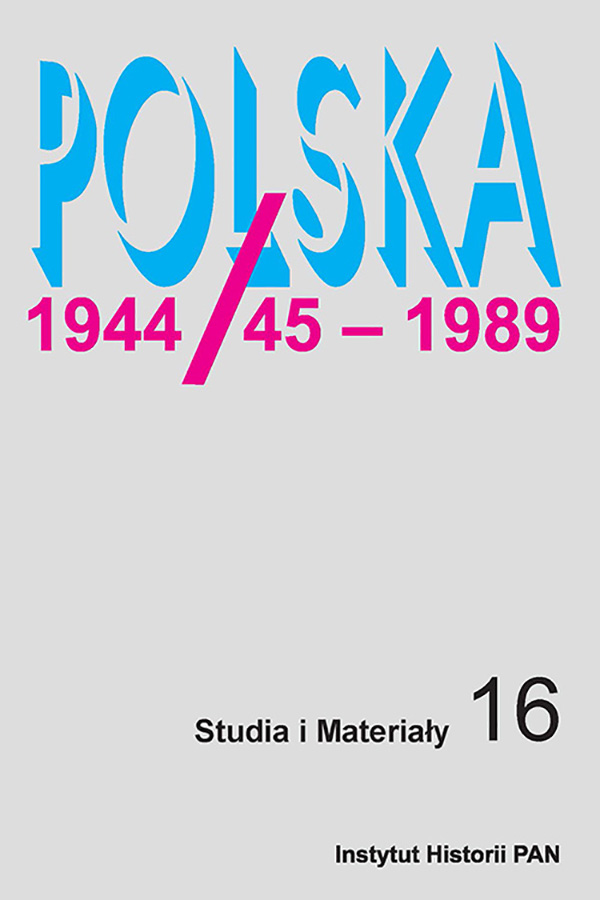Struktury poziome PZPR w warszawskim środowisku naukowym w latach 1980–1981
Communist horizontal structures in the Warsaw academic community in 1980–1981
Author(s): Piotr OśkoSubject(s): History, Political history, Social history, Recent History (1900 till today), Post-War period (1950 - 1989)
Published by: Instytut Historii im. Tadeusza Manteuffla Polskiej Akademii Nauk
Keywords: PUWP; horizontal structures; liberal wing in PUWP; higher education; academic community; crisis in PUWP in 1980/1981;
Summary/Abstract: After the agreement concluded with the “Solidarity” in summer of 1980, it was obvious that the crisis would also have an impact on the relations between members of the Polish United Workers’ Party (PUWP). The Political Bureau of the Central Committee as well as the rest of the apparatus divided into two wings. Liberals wanted further cooperation with the Solidarity and democratisation of the Party’s structures. Conservatives (also called dogmatics) were eager to fight against the opposition and therefore maintain discipline in their own ranks in order to be more efficient in that struggle. Meanwhile, ordinary members massed in the Basic Party Organizations along with their leaders from the lower level of the apparatus started to articulate their disappointment and criticism of the PUWP policy and leadership. The phenomenon was most apparent at the universities and the most numerous industrial party cells. Basic organizations started to cooperate with each other, making the so-called “horizontal structures” (in opposition to vertical structures regulated in the Party’s statute). One of that structures was the Party Coordination Commission of the Warsaw Scientific Community. It was established in November 1980 and consisted of representatives of the universities and the Polish Academy of Sciences as well as representatives of workers invited to the Commission. The main issue discussed during the Commission meetings was general democratization, especially of the PUWP. The head of capital’s communist apparatus Stanisław Kociołek supported that movement but probably it was a tactical decision made to please own members in order to have a free hand to deal with the “Solidarity” regarded as the main threat to hegemony of the Party. This uncomfortable partnership lasted almost until the introduction of martial law in December 1981 which delegalized any informal (both dogmatic and horizontal) structures.
Journal: Polska 1944/45 - 1989
- Issue Year: 2018
- Issue No: 16
- Page Range: 245-280
- Page Count: 36
- Language: Polish

